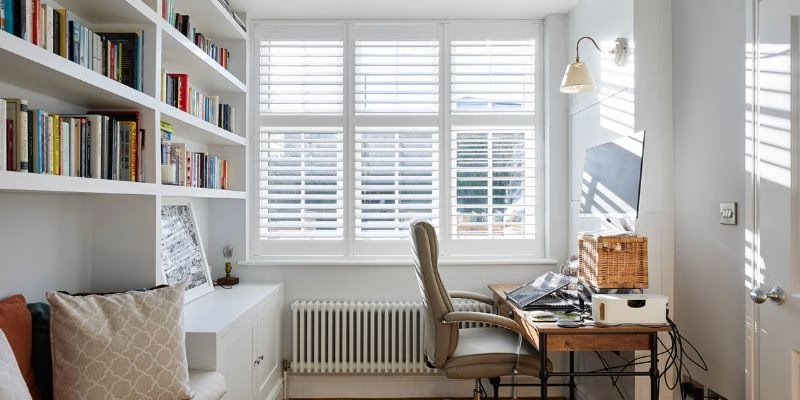SOHO Property (Small Office, Home Office) is the strategic solution for international entrepreneurs navigating the complex Tokyo real estate market. This model eliminates the need to choose between a costly commercial lease and a residential apartment. It offers a legally compliant unit where your home is your headquarters. If you are exploring apartment for rent Japan, grasping the concept of SOHO is essential. It is equally important for dedicated commercial rentals in Tokyo Japan. Understanding SOHO is the crucial first step to achieving superior cost efficiency and operational agility.
What is a SOHO Apartment?
A SOHO apartment is characterized by its specific architectural adaptations and critical legal standing within the Japanese property market. These units are typically smaller than traditional commercial office spaces, often ranging from 30 to 60 square meters. They feature high ceilings and open-plan layouts. The infrastructure is reinforced to maximize both perceived space and functional capacity. Crucially, they are registered under specialized Japanese real estate regulations that permit both residential use and official business registration. This dual registration is the key differentiator from a standard residential-only dwelling within the crowded landscape of apartments in Tokyo.
Key Functional and Legal Requirements of a Legitimate SOHO Unit in Japan:
- Zoning Compliance (用途地域 – Yōto Chiiki): The property must be situated in a zoning area officially recognized by local municipal authorities (e.g., commercial zones, specific residential zones allowing mixed-use) for hosting certain types of business activities. This compliance ensures the legality of your operation.
- Infrastructure Robustness: Unlike standard apartments, SOHO units guarantee high-speed fiber optic internet access. They ensure robust telecommunication lines. These lines are capable of supporting demanding, continuous business operations. These operations include video conferencing, large data transfers, and server hosting.
- Strategic Location: SOHO properties are purposefully located near central business districts (CBDs) or major regional transportation hubs. Examples of these strategic locations in the Greater Tokyo Area include:
- Shibuya and Shinjuku: Ideal for tech, media, and creative industries seeking a trendy, accessible address.
- Chiyoda and Minato Wards: Perfect for consulting, legal, and financial services needing proximity to key corporate and governmental centers.
- Yokohama and Saitama: Excellent for businesses needing urban access without the highest central Tokyo rents.

The Historical Context of SOHO in Japan
The SOHO concept gained significant traction in Japan following the economic shifts of the late 1990s and early 2000s. Rental costs for dedicated commercial office spaces remained prohibitively high, particularly in areas essential for business registration. As a result, demand for an alternative surged. This alternative had to be legally compliant and affordable. The rise of the digital economy has contributed to this model. An increasing number of freelance professionals (Ko-jin Jigyō-nushi) have embraced SOHO spaces. Additionally, foreign startups are seeking a low-cost market entry point. This situation cemented the SOHO model as an indispensable fixture in the Japanese property development strategy.
The Distinct Advantages of Choosing SOHO Rentals in Tokyo Japan
Choosing a SOHO unit offers substantial benefits. These benefits are significant and measurable. They are highly advantageous for expatriate entrepreneurs, digital nomads, and small business owners starting or expanding operations in Japan. These benefits inherently extend beyond simple convenience to include substantial economic, logistical, and operational gains critical for early-stage business survival.
Superior Cost Efficiency and Financial Synergy
SOHO properties represent a critical consolidation of expenses, merging commercial and residential costs into a single expenditure stream. Businesses consolidate two major recurrent costs into one payment. They combine office rent and apartment rent into a single rent or mortgage payment. As a result, businesses achieve dramatically reduced aggregate overheads. This consolidation is a primary driver for adopting the SOHO model. Furthermore, entrepreneurs can often claim significant tax relief:
- Tax Deductibility (必要経費 – Hitsuyō Keihi): A substantial portion of the unit’s total cost can be deducted. These are recognized as legitimate business operating costs. This includes rent, utilities, and even furnishings. These deductions are subject to the supervision of a Japanese tax accountant. This direct reduction in taxable income significantly improves net profitability.
- Single Utility Billing: Consolidating expenses such as electricity, gas, and water under one account. This approach simplifies administrative burdens. It also reduces the number of initial account setup fees typically associated with separate home and office leases.
- Elimination of Commute Costs: Saving substantial monthly fares on Tokyo’s extensive, but expensive, public transport system (e.g., Yamanote Line, subway lines). This saved time and money can be directly reinvested into business development.
Unparalleled Operational Flexibility and Agility
The integrated “Home Office” feature allows for immediate business operations at any hour. It helps avoid the time loss associated with the traditional daily commute. It also minimizes stress and cost. This dramatically improves work-life integration and response times to international clients operating in differing time zones. SOHO properties often come equipped with specialized shared communal facilities. They grant access to professional resources far superior to standard residential buildings. High-quality, shared amenities are a crucial value-add. Examples of these premium facilities often include:
- Executive Meeting Rooms: These rooms are professionally equipped and bookable. They are ideal for formal client consultations, training seminars, or large team collaborations. The building management maintains them.
- Co-working Lounges and Hot Desks: These are shared, well-designed spaces. They foster spontaneous networking. They also encourage collaboration among the building’s resident professionals and entrepreneurs.
- Front Desk and Reception Services: Optional or included services are available for managing mail and accepting deliveries. They provide a professional greeting to external visitors. These services significantly enhance the professional image of a home-based business.
Ideal User Profiles and Target Demographics
SOHO properties are optimally suited for specific professional demographics. These professionals prioritize a central, registered location. They also value operational agility over a large-scale physical footprint. Those who benefit most from this setup are individuals whose work is knowledge-based. Their work does not necessitate extensive physical inventory or constant client visitation. The professional groups optimally suited for rentals in Tokyo Japan that adopt the SOHO model include:
- Small Tech Startups (especially SaaS): These are companies with a small core team. They require an agile, non-retail physical base. This is necessary before achieving Series A funding. They then scale to larger dedicated offices.
- Independent Consultants and Financial Analysts: Professionals primarily work remotely through communication and proprietary data analysis. They conduct virtual client meetings. For them, an official address is more critical than a walk-in storefront.
- International Representative Offices: Foreign professionals need a temporary base for market assessment in Japan. It should be officially registered and legally compliant. This supports initial market assessment and business development activities in the Japanese market.

The Trade-offs: Disadvantages of SOHO Property
The advantages of the SOHO model are substantial. However, potential tenants, particularly international residents exploring rentals in Tokyo Japan, must be fully aware of the inherent limitations. They should understand the regulatory complexities and potential increased costs compared to a standard residential apartment lease.
Legal, Regulatory, and Usage Constraints
The property is officially designated as an office. This designation mandates adherence to stricter usage guidelines than a pure residential apartment. These guidelines are enforced rigidly by building management and local ordinances. For example, SOHO buildings strictly prohibit businesses that generate high levels of public foot traffic (e.g., typical retail stores, public cafes) or excessive noise/vibration (e.g., small-scale manufacturing, commercial kitchens). You must check which specific business activities are allowed with the landlord. Then, confirm these activities with the property management company before executing a lease agreement. Failure to comply with these restrictions is a common cause for lease termination in Japan. Examples of typically prohibited businesses include:
- High-Volume Retail Sales: Businesses designed to attract the general public off the street.
- Restaurant or Food Preparation: Due to fire codes and sanitation regulations.
- Hair Salons or Beauty Parlors: Involving chemical use and specialized plumbing/ventilation.
Elevated Financial Implications and Utility Cost Structures
The financial structure of a SOHO lease involves a commercial element. This makes it inherently more complex. It is also more costly than a residential one.
- Higher Upfront Costs (Initial Fees): The initial deposit, known as Shikikin or security deposit, is frequently set significantly higher for SOHO units. The non-refundable key money, known as Reikin, is also higher. These fees often total 5-7 months’ rent compared to 2-3 months for a residential unit. This reflects the increased risk of wear and tear anticipated from commercial usage.
- Commercial Utility Rates: Utility costs (electricity, gas) might be levied at a higher commercial rate. They may not benefit from the lower, subsidized residential rate. This significantly impacts monthly operating expenses, especially if the business uses significant power for servers or specialized equipment.
- Administrative Complexity: The need to separate business and personal expenses for tax purposes complicates monthly bookkeeping and requires detailed record-keeping.

Should I Rent a SOHO Apartment in Tokyo?
You must make the decision to rent a SOHO unit after a calculated assessment. Consider your legal needs in Japan. Also, assess your operational needs there. SOHO is a specialized product, not a default option.
- You Should Choose SOHO Property: If your primary objective is legally registering a business address (Honten) with the Japanese government, select a SOHO property. This choice ensures compliance with legal requirements. You may also need to obtain the necessary documentation for visa purposes, if applicable. By combining living and working spaces, you can maximize the legitimate tax advantages. In this case, a SOHO apartment is the most legally sound and operationally integrated choice.
- You Should Choose a Standard Residential Apartment: If you want quiet and affordable residential living, choose a standard apartment in Tokyo. It will be simpler to lease. It is ideal for salaried employees or students. You can occasionally work remotely without any necessity for official business registration. The apartment will be substantially more cost-effective in terms of upfront fees. It is also subject to fewer complex regulatory burdens.
The SOHO model provides a highly valuable solution for a specific niche. It is a calculated business decision. It is not simply a matter of preference.
Arealty: Your Trusted Partner for Tokyo SOHO and Apartment Search
Navigating the unique leasing requirements for SOHO properties requires specialized, up-to-date expertise. This expertise is essential for verifying legal compliance for foreign businesses. It is absolutely vital for non-Japanese speakers. ARealty is a dedicated real estate brokerage. We focus exclusively on simplifying the complex and often opaque rental process. This service is for expatriates and international businesses establishing their presence in Japan. We offer a meticulously curated, verified selection of properties. These properties explicitly meet the legal SOHO criteria. This ensures your business operation is compliant from the initial day of occupancy.
Our highly professional and bilingual team provides transparent and reliable support. We guarantee legal compliance and clear communication. This spans the rigorous application, background check, and contract negotiation phases. We specialize in successfully navigating unique Japanese rental customs. This includes securing guarantors. We clarify the differences between Shikikin and Reikin. Consult with ARealty today to leverage our market expertise. Secure a SOHO unit that perfectly aligns with your professional needs. Ensure it meets your legal and residential needs as well. We serve as the indispensable bridge between international tenants and the Japanese property management structure.
Contact Arealty now to access our exclusive, verified listings for compliant SOHO property. Secure your ideal, legally registered work-life space in Tokyo. We are dedicated to streamlining your entry into the competitive Japanese market.

Conclusion
The information presented here provides general, professional guidance on the SOHO property model. It also addresses the complexities of the Japanese rental market structure. Specific tax benefits, legal registration requirements for foreign businesses, and property costs depend on current Japanese national and municipal laws. They also rely on the particular terms set by the property management company. International tenants and entrepreneurs should consult a certified Japanese Zeirishi (tax professional). They should also seek advice from a legal expert before making significant financial and operational commitments in Japan. The examples provided are illustrative of typical market conditions as of late 2025.






Leave a Reply